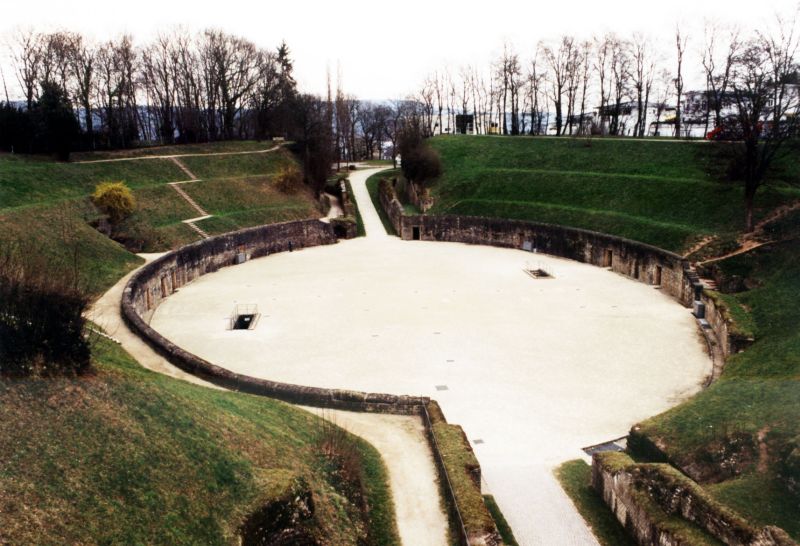Merogaisus on:
[Wikipedia]
[Google]
[Amazon]
Merogais (, ) was an early  In 306 he and Ascaric led a Frankish raid across the
In 306 he and Ascaric led a Frankish raid across the
Frankish king
The Franks, Germanic peoples that invaded the Western Roman Empire in the 5th century, were first led by individuals called dux, dukes and monarch, reguli. The earliest group of Franks that rose to prominence was the Salian Franks, Salian Mero ...
, who, along with his co-ruler Ascaric
Ascaric or Ascarich () was an early List of Frankish kings, Frankish war leader, who, along with his co-leader, Merogais, are the earliest known leaders explicitly called Frankish, although the name of the Franks is earlier.
The Germanic name is ...
, is the earliest Frankish ruler known. He was an enemy of the Roman Empire
The Roman Empire ruled the Mediterranean and much of Europe, Western Asia and North Africa. The Roman people, Romans conquered most of this during the Roman Republic, Republic, and it was ruled by emperors following Octavian's assumption of ...
. Merogais is mentioned in the ''Panegyrici latini
' or ''Twelve Latin Panegyrics'' is the conventional title of a collection of twelve ancient Roman and late antique prose panegyric orations written in Latin.
The authors of most of the speeches in the collection are anonymous, but appear to hav ...
'' (anonymous VI and VII) and by Eutropius and Eumenius. The very existence of Merogais depends on the manuscript reading of Johann Kaspar Zeuss
Johann Kaspar Zeuss (or ''Zeu ß'', 22 July 1806 – 10 November 1856) was a German historian and founder of Celtic philology. He is credited with demonstrating that the Celtic languages belong to the Indo-European group.
Life
Zeuss was born in ...
. The sentence which names the two kings begins with ''Asacari'' or ''Assaccari'' in all manuscripts, but it ends with the corrupt forms ''cinere gaisique'', ''cumero geasique'', ''cymero craisique'', and ''cymero caisique''. Zeuss reads those sentences as ending respectively ''cum Neregaisique'', ''cum Merogeasique'', ''cum Merocraisique'', and ''cum Merocaisique'', each meaning as "and with Merogais".
 In 306 he and Ascaric led a Frankish raid across the
In 306 he and Ascaric led a Frankish raid across the Rhine
The Rhine ( ) is one of the List of rivers of Europe, major rivers in Europe. The river begins in the Swiss canton of Graubünden in the southeastern Swiss Alps. It forms part of the Swiss-Liechtenstein border, then part of the Austria–Swit ...
into southern Gaul
Gaul () was a region of Western Europe first clearly described by the Roman people, Romans, encompassing present-day France, Belgium, Luxembourg, and parts of Switzerland, the Netherlands, Germany, and Northern Italy. It covered an area of . Ac ...
while Constantine the Great
Constantine I (27 February 27222 May 337), also known as Constantine the Great, was a Roman emperor from AD 306 to 337 and the first Roman emperor to convert to Christianity. He played a Constantine the Great and Christianity, pivotal ro ...
was campaigning against the Picts
The Picts were a group of peoples in what is now Scotland north of the Firth of Forth, in the Scotland in the early Middle Ages, Early Middle Ages. Where they lived and details of their culture can be gleaned from early medieval texts and Pic ...
in Britannia
The image of Britannia () is the national personification of United Kingdom, Britain as a helmeted female warrior holding a trident and shield. An image first used by the Romans in classical antiquity, the Latin was the name variously appli ...
. Apparently the two had made a previous agreement with Rome not to cross the border, since Constantine sought to punish them as traitors upon his return. The two chieftains were defeated, captured, and executed "for their past crimes", an act which "bound with fear the slippery loyalty of the whole race," according to one of the emperor's anonymous panegyrists. The execution took place in one of the chief cities of Gaul, probably Trier
Trier ( , ; ), formerly and traditionally known in English as Trèves ( , ) and Triers (see also Names of Trier in different languages, names in other languages), is a city on the banks of the Moselle (river), Moselle in Germany. It lies in a v ...
, and the two Franks and their followers were torn apart by animals in the amphitheatre
An amphitheatre (American English, U.S. English: amphitheater) is an open-air venue used for entertainment, performances, and sports. The term derives from the ancient Greek ('), from ('), meaning "on both sides" or "around" and ('), meani ...
before a large crowd. Their defeat was followed by the subjection of the Bructeri
The Bructeri were a Germanic people, who lived in present-day North Rhine-Westphalia, just outside what was then the Roman Empire. The Romans originally reported them living east of the lower Rhine river, in a large area centred around present day ...
.
References
*Howorth, Henry H. (1884). "The Ethnology of Germany: Part VI. The Varini, Varangians, and Franks, Section II". ''The Journal of the Anthropological Institute of Great Britain and Ireland'', 13:213–237. * Landriot, Jean-François-Anne, and Rochet, Benoît Joseph (1854). ''Traduction des discours d'Eumène: accompagnée du texte''. Autun: Michel Dejussieu et Louis Villedry. *Long, Jacqueline (1996). ''Claudian's ''In Eutropium
''In Eutropium'' is a two-book long panegyric poem and an invective written by the poet Claudian. The poem criticizes Eutropius, an Eastern Roman politician and court eunuch. It attempts to portray Eutropius as a corrupt, ineffective, and effemi ...
'': Or, How, When, and Why to Slander a Eunuch''. Chapel Hill: UNC Press. {{ISBN, 0-8078-2263-9.
306 deaths
Frankish kings
Frankish warriors
4th-century Frankish people
4th-century monarchs in Europe
Year of birth unknown
European people whose existence is disputed